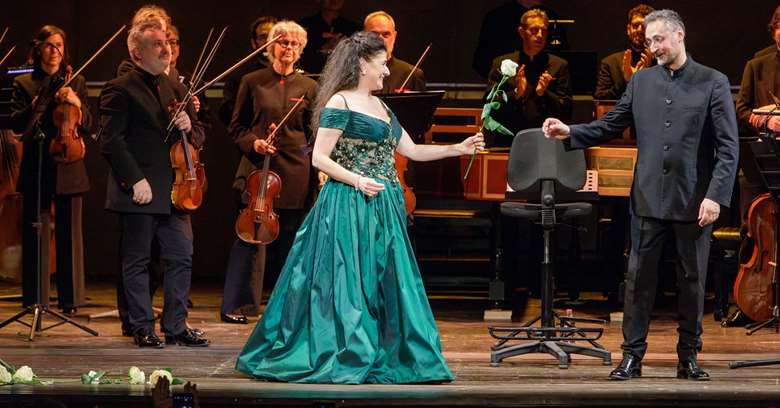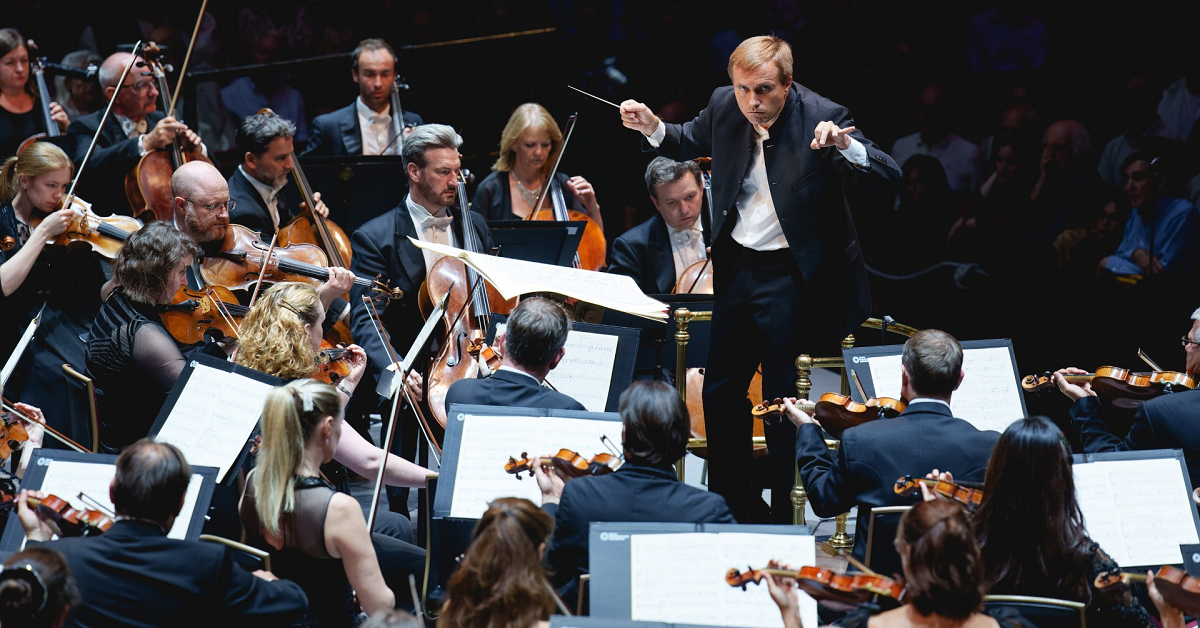The genius of Monteverdi
Charlotte Gardner
Tuesday, July 30, 2024
The Monteverdi Festival in Cremona is flourishing thanks to the passion and vision of its new directors, finds Charlotte Gardner

Credit: Monteverdi Festival, Cremona
‘The end of all good music is to affect the soul,’ stated the composer Claudio Monteverdi, meaning that had his ghost been hovering around his birth city of Cremona on the night of 20 June 2024, and specifically over its Chiesa di San Marcellino, he would have been well pleased. Not only was its majestic gilded interior verily zinging with Les Arts Florissants and its music director William Christie performing his Selva morale e spirituale with heart-burstingly joyous, sensuous vocal virtuosity to a packed Monteverdi Festival audience, but the souls of that audience were very clearly being affected. Five hundred people and not a single ring tone or even cough. Just bewitched, reverential silence until, upon the concert’s closing chord, thunderous applause and a standing ovation, met by the clearly-moved musicians with two encores. Quite a night, and one which shone with the festival’s aim to promote the legacy and performance practice of Monteverdi’s work throughout Italy and globally.
Perhaps surprisingly, that aim was set only recently. Run by Cremona’s Fondazione di Teatro Ponchielli, the festival was originally established in the early 1960s with a strings-repertoire focus in celebration of Cremona’s violin-making heritage. Then came the early music revival, and in 1983 the festival was renamed after Monteverdi and began, slowly, to include some of his music – but still within a generalist programme, and with no opera.
However, in 2021 stage director Andrea Cigni was appointed theatre superintendent. Passionate about Monteverdi’s music and its significance within Italian culture, he was concerned that its performance practice could be lost through Italy’s obsession with its 19th-century operatic tradition. He was also positively in love with the greater musical and visual freedom that Monteverdi’s works offer, both thanks to the space his scores leave for the musicians to create and customise, and Italian audiences being less rigidly traditional on how ancient opera should look and sound. Cigni swivelled the spotlight entirely onto to championing Monteverdi’s work, comparing it with that of his contemporaries (Christie’s concert also featured sonatas by Dario Castello and Giovanni Battista Fontana), and to nurturing the next generation of its authentic interpreters – notably through the creation of the Monteverdi Academy, open to young instrumentalists and singers from around the world. And he was joined by a new music director, Orchestra Cremona Antiqua’s Antonio Greco.
‘Andrea Cigni swivelled the spotlight entirely onto to championing Monteverdi’s work’
The result is a festival offering something entirely unique, as an impassioned Cigni described to me the morning after Christie’s concert as we sat amid the red-and-gold, balcony-wrapped splendour of the theatre’s Canonica-designed auditorium. ‘There aren’t the opportunities to listen to this kind of music anywhere’ he emphasised. ‘If you want to listen to this ancient music at its best, with original instruments, with people who have studied for it and hold it in respect – not like in a museum, but to show that it is so contemporary, so modern, and everything coming from here [patting his heart] – you have to come to Cremona.’
Those who do will find a festival whose cornerstones are two theatre productions, and four or five headline concerts, all authentically performed by a line-up balancing the biggest names in early music – regulars include William Christie, Philip Herreweghe, Fabio Biondi, Sir John Eliot Gardiner, Ottavio Dantone and Christophe Rousset – with emerging young talent. Perhaps this year’s flagship event for mixing the generations was Olivier Fredj’s sumptuously surrealist staging of L’Orfeo, which had conductor Francesco Corti and Il Pomo d’Oro accompanying a young cast. It was headed by the 2023 winners of the theatre’s brand new biennial Cavalli Monteverdi Competition for Baroque singers – who brought the house down with their stylishly energetic performances. All the major guests also spend a certain number of hours with the Academy students, who themselves perform.
The Incursioni side strand meanwhile leans into ancient music’s capacity to engage with modern and cross-genre formats such as electronics or jazz. One 2024 highlight still making Cigli’s eyes dance in memory was Combattimento 400 from Musica Antiqua Latina under Giordano Antonelli, ‘an incredible experiment’ reframing Monteverdi’s Il combattimento di Tancredi e Clorinda to include ancient Sufi music and historical Arabian instruments.


Monteverdi's L'Orfeo at the Monteverdi Festival, Cremona. Credit: Monteverdi Festival, Cremona
Finally, there’s the Monteverdi Everywhere outreach programme. This sees festival musicians perform in local schools and Cremona prison, plus each year a different business and a different hospital or care home. Then, d/Deaf and blind people are invited to the theatre to attend the regular performances. People with visual impairments use a headset describing what’s happening onstage, and those with hearing loss are seated close enough to the pit to feel the music’s vibrations, plus there are visits backstage to touch the props, scenery, costumes and speak to the artists.
Crucially, the festival has a digital strategy to match all this passion for youth, new-audience-building, and ancient music’s capacity for modernity. Unsurprisingly, this includes an active social media presence. Even more visibly, though, Cremona’s pavements are dotted with Festival-branded QR codes taking people to where online they can give feedback and engage with the programming team. And all managed by the theatre’s 22-year-old social media manager. In a country known for its barriers to young graduates getting on the career ladder, Cigni has also deliberately hired young people into each of the theatre’s previously-middle-age-heavy departments. ‘To protect our tradition,’ he points out, ‘we have to create a new generation of artists and managers’.
All of this re-centring is reaping results, too. Firstly, in terms of who the festival is attracting: a notably wider age span than the theatre sees for, say, a Verdi Don Carlo, and student ticket sales doubled between 2023 and 2024 (they sold 198 student tickets in 2023 and 378 this year); a substantial foreign audience, with around 40 per cent of tickets sold to non-Italian visitors; major stars, who this year notably included mezzo soprano Cecilia Bartoli, who now rarely performs in Italy.
‘Crucially, the festival has a digital strategy to match all this passion for new-audience-building’
Then secondly, in terms of what the festival is attracting, because Cigni’s message about the importance to Italian culture of preserving Monteverdi’s legacy has even been heard by the Italian government: to date, the festival has received around 60 per cent of its funding from public sources and raised 40 per cent privately (around €600,000); but this past May the Chamber of Deputies granted it an additional annual €1m for the next three years by naming it one of Italy’s events of Absolute International Prestige.
Asked about future ambitions, Cigni doesn’t even draw breath. ‘For this festival to grow; to reach the stability needed to retain this special resource from the Italian Parliament after 2027; and to be a place for new generations of musicians and audiences.’ Odds are, he’ll achieve all that.